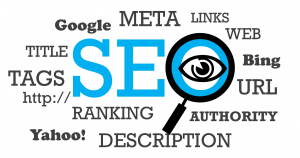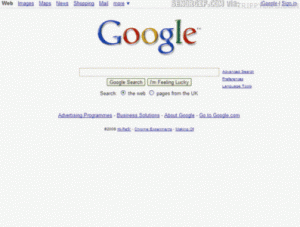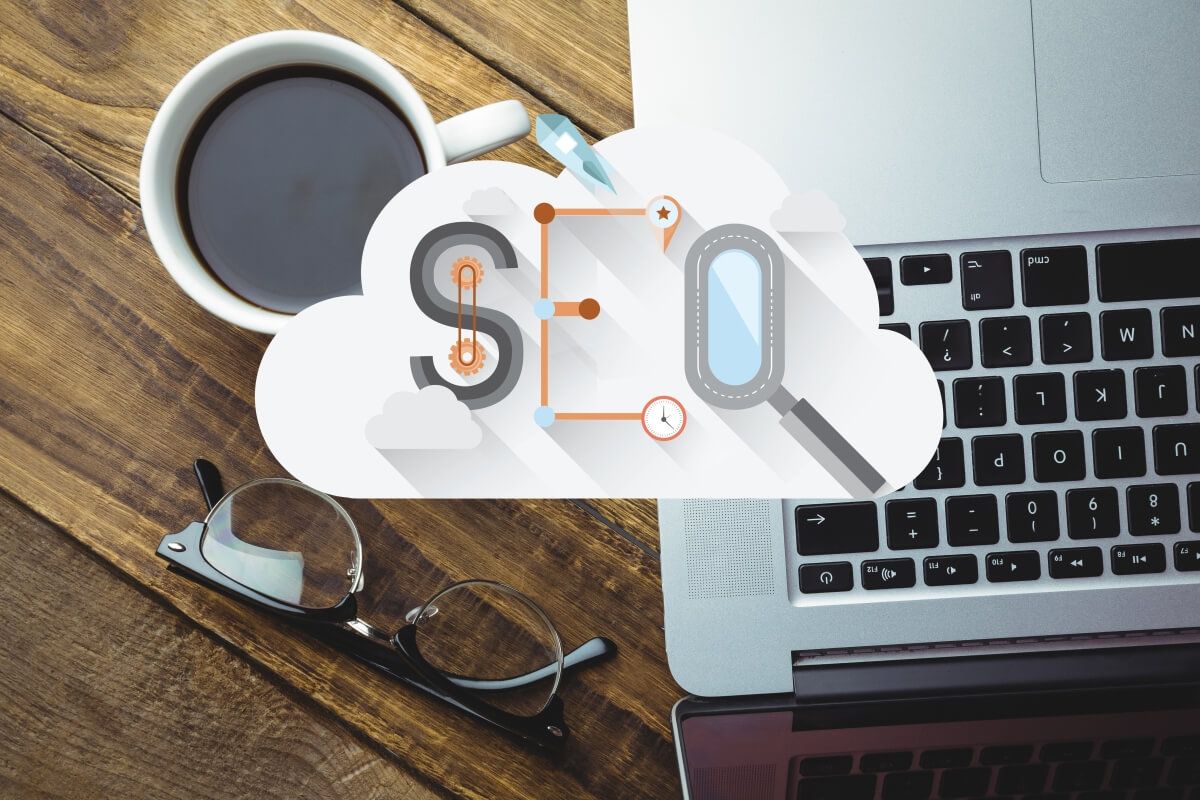SEO is an important tool in the era of digitalization. Search engine optimization or SEO is the process of improving your website ranking by altering the content or design. An optimized website has high chances to get on top of the search engine pages. If you run a business and don’t use SEO then you are far from being successful.
SEO is a guarantee for solid website traffic, which is essential if you run your business on online platforms as well. In this article, we’ll introduce you to general SEO benefits and expose how SEO scraping will boost search engine rankings for your business in 2019.
What Is SEO and Why Your Business Needs It?
There are many ways how SEO can help your business boost search engine ranking. SEO offers numerous benefits to your business. If you don’t know how exactly SEO is important to your business then you are missing out. Below are the main benefits that SEO can offer your business:
Beat the competition with the organic search
How the website performs in the search engine rankings is often decided by the organic search of their business. The organic search is responsible for growing your website’s traffic and improving the conversion rates without paying for ads. Organic search helps get higher visibility by trusted search engines like Google. A quality SEO will ensure a higher ranking and thus help beat the competition with other businesses. Not mentioning that it will also create a better brand trust in the eyes of the customers.
Get more customers at the discovery stage
When do people use search engines most often? Correct, when they are in either awareness or consideration stage. They want to make proper research, assess different choices and make the best decision. During this stage, if you hadn’t done your SEO, there are little chances to get seen by your potential customers and high chances to lose to the competition. Only 8% of searchers make it to the second page of Google, while 92% of search traffic checks only the top 10 results. So a proper SEO will help get noticed at the discovery page and get more customers.
Build a brand identity
SEO plays an important role in your brand reputation and identity. Since it helps boost search engine rankings, it also increases the chances of being recognizable. People are always willing to buy from those companies that have an identity. Businesses always put a lot of hard work in building their company culture and creating a unique brand personality. SEO helps in this process by establishing a strong foundation for a user-friendly website, which can be easily discoverable in the search engines.
Increase the ROI of your business
SEO is much cheaper compared to other marketing strategies. Investing in a good SEO strategy will pay-off and increase your revenue in a relatively short period. SEO is indeed an investment for your business, rather than an expense. You’ll get higher conversions, better traffic, improved visibility, and a boost in the bottom line. So SEO is an “all in one” package packed with lots of benefits for your business.

PC: Freepik
Search engine scraping is a powerful tool that will help you out with the SEO efforts to stand out of the crowd. Keep reading to find out what SEO scraping is and how exactly it works.
SEO Scraping – What Is It?
SEO scraping is the process of crawling and scraping data, such as URLs, descriptions, or other types of information from the search engines. SEO scraping is dedicated to harvesting data from search engines only. Achieving good visibility in search engines like Google or Yahoo is a hard task. Millions of businesses compete for the chance of getting a first-page result to get more organic traffic. So many businesses are involved in SEO and they need to update their keywords and other SEO relevant factors to be able to compete.
SEO scraping helps businesses stay updated by scraping keywords from search engines like Google and monitor their competitive position in the search engine.
While most businesses crawl Google for conducting SEO scraping, on the other hand, Google too uses computers to crawl websites and display the search results.
Elements of SEO to Scrape
Now let’s proceed and talk about what exactly you want to scrape with SEO scraping. SEO involves important elements that help to boost search engine rankings, and these elements are exactly what you want to scrape. Let’s talk about the importance of each element separately:
Title tags
The title is an important element of SEO. Titles play a big role in the way you will rank in the search engine. Title tags are an HTML element found in the <head> section of the HTML code of your website. The titles you use can appear in the search engines, browser tabs, and social media posts.
Title tags are important because they let the reader know what they will learn once they click on a page. The same logic is behind the search engines. The only difference is that search engines will also determine the relevancy of the web page and how it is in the search query accordingly. So if Google doesn’t like your title tag, there are little chances that you will make it to the first page. So you want to use SEO scraping to harvest title tags that are the most relevant ones.
Meta descriptions
Meta descriptions also can do magic to your SEO and search engine rankings. Meta description is a short, 150-160 character snippet (the optimal length changes from time to time), that you can see in the search engine results below the titles. They are also very important because, they too, are recognized and analyzed by search engines according to their relevance. Search engines show the meta description so the searcher can read it and find out what the page is about before they click on it. So SEO scraping will also crawl the meta descriptions from search engines’ top result so that you can compare and contrast your content with the content used by your competitors. It’s important to conduct SEO scraping on a regular basis and check how the results are changing, in order to always stay competitive.

PC: Rawpixel
Keywords
It’s important to note that title tags and meta descriptions are always created based on the correct usage of keywords. No meta description or title would make it to the top page without the proper use of relevant keywords. There are lots of tools that can help you with keyword research. However, how are you going to judge the value of these keywords? Using the right keywords is everything that matters for SEO.
Firstly, you need to research the keyword demand of the market in which you’re operating. Next, you want to predict shifts in the demand and create content that internet searchers are actively looking at. Web scraping services will help you with the keyword research part. You will scrape your competitors content who are performing well in the market, analyze that content and spot the most important targeted keywords. And if you do so regularly, there are great chances to boost your search engine rankings.
Google SERP
Search engine results pages or SERP is really all that matters when you do SEO scraping. All of the above-mentioned elements are gathered together in the results pages of search engines. You always want to keep an eye on competitors that are moving above you in the SERPs.

Scraping the SERP will help to monitor all the changes and make changes to your content whenever needed (e.g. tweaking your meta description or page structure, improving internal linking, etc.). The more closely you monitor the ranking movements, the better you can pinpoint a specific set of changes and improve your SEO strategy.
The Legal Side of SEO Scraping
When we get to the legal side of web scraping, there are many controversies. The person who’s involved in the scraping process must be well aware of the legal and ethical aspects of data scraping. There were cases when scraping violations took people to courts and ended up in big disasters for companies. The legality of web scraping is much dependent on the country. For example, there are completely different approaches in the European Union and the United States. The EU is far more strict when it comes to web scraping. In the US, the most important things to keep in mind is to always follow the “terms of use” for the websites you want to scrape and give credit to the original author if you republish copyrighted information.
When it comes to SEO scraping, the whole legality situation is a bit different. Search engines crawlers simply copy paste the information they scrape from other websites and don’t mention the owner of the intellectual property. A search engine like Google gets all the data by scraping millions of public websites, without reading and accepting the terms of use. One of the biggest SEO scraping incidents happened in 2011 between Google and Bing, when Google accused Microsoft of copying its search result. However, even this incident didn’t make to a court case. It would be wrong to say that SEO scraping doesn’t involve challenges, however, the legal part is definitely not the hardest one to implement.
Challenges of Google Scraping
As we’ve already mentioned, the legality of SEO scraping must be carefully addressed when crawling search engines like Google. However, the legal side of Google scraping is not a tough obstacle for the person who’s scraping. There are other challenges involved that are more troublesome.
The user agent-problem
Google won’t let you scrape their data you don’t set the user-agent header. It does test the browser type of HTTP requests and it automatically rejects the user-agents that possibly automated bots. Bing, for example, is more forgiving and doesn’t care much about the user -agents. Also, it’s best to use a consistent user agent because Google will present different markup for different browsers and break your HTML parsing. So don’t just randomly pick a new user-agent each time, just stick to one.
IP limitations
you can’t trick a search engine like Google by changing your IP, so network and IP limitations are a part of the scraping defense system. You don’t want to use cheap proxies in an attempt to circumvent this rate limit because you’ll end up with no data at all.
Slow and steady scraping
Google wants you to be polite and request no more than 2 pages per minute maximum. That is extremely slow, yes. However, if you want to get your SEO scraping, that’s the way to go. If you go over that limit, Google will force all requests originating from that IP to solve CAPTCHA restrictions before moving on. And, if you keep doing so, Google will eventually put a temporary ban on your IP and make it less reliable and trustful. That’s another important reason why you always want to use a clean IP.
Layers of defense
Google uses many defense layers to restrict unauthorized scraping. The first layer is the CAPTCHA one which intends to verify if the user is a real person and not a robot. Next, you get an error page but this time without the CAPTCHA. Instead, you get blocked from using the search engine until this temporary block is lifted. An last but not least, the third layer is the long-term block which can take up to several months. This one happens if the scrapper used a huge number of requests.
SEO scraping involves some challenges that must be taken care of; however, we have to admit that web scraping, in general, is not an easy task. That’s one of the reasons why many businesses choose to outsource the work to a professional web scraping service. A solid SEO strategy will leave long-term benefits for your business. And despite all the challenges, SEO scraping will help make the process less time-consuming and more effective.


